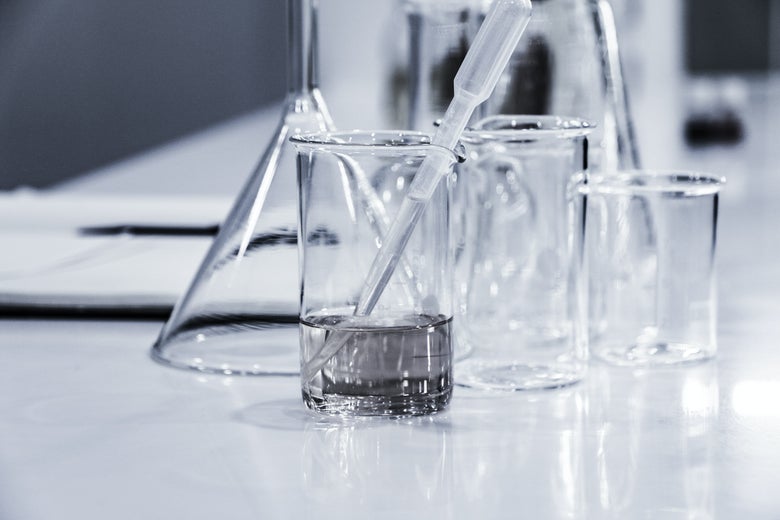
When I tell people that I’m majoring in molecular biology, I usually get a response that’s something like this: “I could never do biology.” Or worse: “I could never do science.”
This seems to be a common response that people in the sciences get when they talk about how they spend their time in school or at work. My friend who majors in psychology, my editor who has a physics degree, my high school mentor with a doctorate in neuroscience—they all tell me that they get some version of the “that would be too hard for me!” response when they share their credentials. I’m graduating soon, with the intention of staying in the biology world. It feels like I might be gearing up for years and years of being on the receiving end of the “wow, that’s too hard for me” response. Every time I hear it I want to yell, No! Stop! Have some faith in yourself!
I understand that the “I could never do science” sentiment might come from an honest assessment of your perceived math or memorization capabilities. Maybe you’re still recovering from a bad grade in high school calculus, or you’re remembering how nasty dissecting that frog in middle school was. But those things encompass a really limited idea of what “doing science” is like.
We tend to think of a “scientist” as someone who knows everything there is to know about their field—think the super-geniuses with 7 PhDs like Bruce Banner, or House MD coming up with correct diagnosis after correct diagnosis out of seemingly nowhere, or Isaac Newton inventing an entire branch of math. In this view, a scientist is someone who has forgotten more than most people will ever know. Yes, two of the people in that list are fictional. But even if your front brain knows it’s ridiculous to expect all scientists to be revolutionaries who know both the ins-and-outs of kidneys and how to cut open someone’s chest, I worry that the lizard brain has internalized a more insidious message: that you’ll never be as smart as Hugh Laurie in a lab coat, so you might as well write off science as something you could never do. And I promise that’s not true at all!
To use somewhat of a cliché, “science” is not a noun that is bestowed on a gifted few while everyone else looks on at this strange elite. Quite the opposite: “science” is a verb. You do science. Or it’s an adjective: you think about something scientifically. Being “good at science” isn’t memorizing every cell in the human body or being able to rattle off knowledge about electrons, it’s being able to ask a question, see what happens, and ask another question, ad infinitum. It’s all part of the soup: science isn’t knowing, it’s figuring things out, it’s failing and trying something new. It doesn’t take intelligence (an extremely fraught concept in its own right), so much as a willingness to think critically and keep getting things wrong (and wrong again). Not to be dramatic, but thinking otherwise is how we get people like Elizabeth Holmes. This woman literally has just done a little part of a chemical engineering degree—a fancy, impossibly hard-sounding field— and people thought “great, she has it handled!”
And if you think–maybe even subconsciously–of science as a list of established, immutable facts, put forth by super-smarties who get things right on the first try, seeing those facts change can feel highly suspicious. Remember how “don’t touch your face, and save the masks for healthcare providers” turned into “SARS-CoV-2 is airborne, everyone needs to wear a mask like our lives depend on it”? The confusion around shifts in COVID facts and guidance is partially a messaging problem. But I think it’s also a problem of how we typically think of science itself, as an explanation, not a process. When facts shift, it can feel like you’ve been lied to, when really scientists just found out more information about what’s happening. This is common because scientists are a fallible bunch of people trying to make sense of the world.
I understand that people might say “I could never do biology” off the cuff without thinking much about it. But I think about it every time. I don’t really blame them as much as I blame the institutions that have helped shape science into an exclusive pursuit. It just shows me how much we, as people who do science, have failed to make our field feel inclusive and welcoming.
But if people stop saying that they “could never do science,” it’d be a meaningful (albeit small) step forward. Maybe they’d start to believe otherwise—it’s never too late to learn how to read a scientific paper!—or at least stop implicitly telling others that they can’t do it either. Instead of remarking on how hard science is the next time someone tells you about their job or degree, maybe ask them a question. Or just share something about your job or even your pets. At the very least, it’d make conversations on my end less awkward and more interesting.
"Stop" - Google News
April 13, 2022 at 04:26AM
https://ift.tt/fElHz1u
Why you should stop saying you can't do science - Slate
"Stop" - Google News
https://ift.tt/7FlKTHB
https://ift.tt/DSLalrz
Bagikan Berita Ini














0 Response to "Why you should stop saying you can't do science - Slate"
Post a Comment